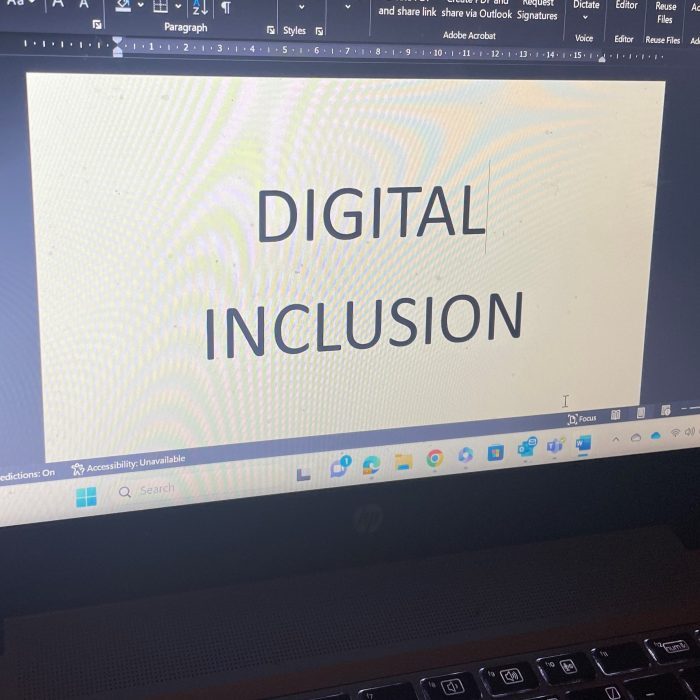Online access is crucial to ensuring that Gypsies and Travellers can participate in civic life. The fact you’re reading this on a website is proof of just how commonplace digital inclusion seems to have become.
But for a number of those living roadside and in insecure accommodation, this is not the case. Many – if not all – of the projects developed over the pandemic period have run out of either time or resources, leaving those who were once included to be excluded once more.
To help remedy this, MfC is commissioning a series of projects over the next two years to enhance the capacity of those organisations currently working with Gypsies and Travellers to cross the digital divide.
First among these are two “test and learn projects” of six months duration, to be delivered by Armagh Roma Traveller Support [ARTS] and Article 12 in Scotland.
The ARTS project will focus on improving digital inclusion for young Roma and Travellers to ensure they have equal access to information, opportunities, and services in the digital age.
Provision will include: Computer Literacy Classes, establishment of an internet café [with staff to help individuals log into Universal Credit Account, Book GP appointments, book flights and speak to family at home in Bulgaria], classes covering issues such as basic computer skills, internet safety, online communication, online, banking and paying bills, scam and fraud information and using digital tools for job searches and education purposes and mentorship of students currently in further education and training.
Meanwhile, Article 12’s project will seek to maximise digital access for young Gypsy/Travellers in Scotland to complement the learning and development support that Article 12 in Scotland currently offers.
Its project will train up to 50 young Gypsy/Travellers in digital skills including online learning [including SQA accredited modules and courses presently delivered by Article 12 in Scotland and their partners], job and benefit searches and applications and peer learning and development through the inclusion of Gypsy/Traveller peer educators in the co-delivery of the project.
More projects across the nation will be springing up over the next two years – watch this news space for details!
